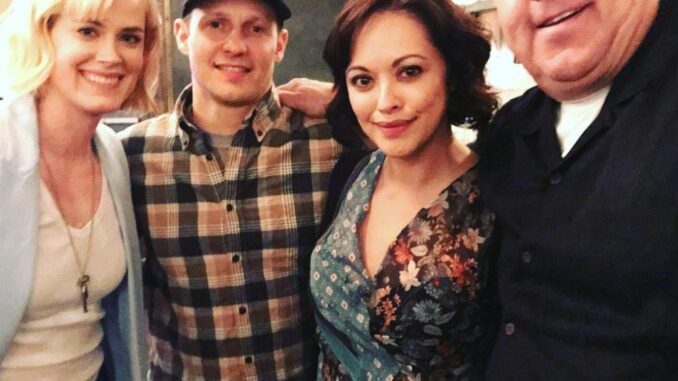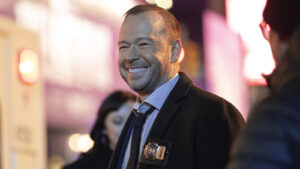
Blue Bloods S14E13: A Deep Dive into “Bad to Worse”
Blue Bloods has long held a dedicated viewership for its thrilling storylines, complex characters, and its in-depth look into the moral conflicts faced by the NYPD. Season 14, Episode 13, titled “Bad to Worse,” lives up to the show’s legacy by weaving intense drama, ethical dilemmas, and the value of family bonds. This episode is particularly impactful as it tackles the theme of “from bad to worse,” exploring how the Reagans handle crises that escalate with each turn.
Let’s dive into the storyline, character arcs, and thematic elements that make “Bad to Worse” a gripping episode.
Plot Summary: Escalating Challenges
The episode begins with Commissioner Frank Reagan facing a volatile situation in New York City. As tensions between the police force and the public escalate, Frank must decide how to handle a protest that could quickly turn violent. His challenge grows as he faces both external pressure from the mayor’s office and internal resistance within the department. This plot thread not only provides a captivating look at the complexity of leadership but also reflects on the balance between safety and justice.

Meanwhile, Danny and Baez are caught up in a high-stakes case that pushes their investigative skills to the limit. They’re called to solve a series of seemingly unrelated crimes that rapidly spiral out of control. Each step they take brings them closer to a dangerous revelation, forcing Danny to confront the question of whether his instincts are leading him in the right direction. This case serves as a tense subplot that explores Danny’s dedication to the job and his personal drive to make the city safer.
On the other side, Jamie and Eddie are dealing with challenges of their own, but on a more personal level. They find themselves questioning their choices as officers when a rookie makes a critical error. Their storyline highlights the importance of mentorship, accountability, and the burden of setting an example for younger officers. It’s a subtle reminder that the weight of responsibility doesn’t end with a badge—it requires a moral compass and the willingness to make tough decisions.
Character Development: Complex and Relatable
In “Bad to Worse,” the Reagans face a variety of personal and professional dilemmas that test their convictions. Frank, usually seen as a steadfast leader, displays moments of vulnerability and frustration. The pressures of his role become apparent as he struggles to mediate between his duty to the city and his desire to protect his family. This portrayal adds a new dimension to Frank’s character, showing that even the most resilient leaders have moments of doubt.
Danny, on the other hand, exhibits his usual determination but with a noticeable edge. The episode explores how his commitment to his work sometimes blinds him to the personal toll it takes on his relationships, particularly with his son, Sean. This personal conflict underscores Danny’s dedication and hints at the sacrifices police officers often make in pursuit of justice. His story arc in this episode resonates deeply with the audience, reminding them of the fine line officers walk between personal life and duty.

For Jamie and Eddie, their journey centers on what it means to be leaders within the force. Jamie’s introspective approach and Eddie’s candid style offer a fascinating contrast in their handling of the rookie officer’s mistake. Together, they represent different perspectives within the NYPD, each valuable in its way. Their storyline adds layers to their characters, illustrating how both can learn from each other despite their differing styles.
Themes: Loyalty, Accountability, and Moral Dilemmas
Blue Bloods consistently tackles complex themes, and “Bad to Worse” is no exception. At the heart of this episode lies the theme of loyalty—loyalty to family, to one’s duty, and to personal values. Each Reagan family member wrestles with questions of loyalty, whether it’s to the badge, to their family, or to their moral beliefs. This recurring theme is emphasized in scenes where the Reagans gather for their traditional Sunday dinner. Here, family members openly debate the complexities of their jobs, often disagreeing but ultimately respecting each other’s viewpoints.
Accountability also plays a major role. Jamie and Eddie’s handling of the rookie’s mistake sheds light on the need for transparency and the importance of learning from one’s errors. The episode acknowledges that mistakes are inevitable in law enforcement but underscores the necessity of accountability to build trust and improve the force.
Moral dilemmas are perhaps the episode’s most compelling theme. Frank, Danny, and Jamie each face choices that challenge their values, pushing them to consider the broader consequences of their actions. For Frank, this means choosing between maintaining peace and risking a confrontation that could escalate quickly. Danny’s dilemma lies in deciding how far he’s willing to go in the name of justice, and Jamie’s is about setting the right example for a new generation of officers. These dilemmas add depth to the episode, making it resonate with viewers who appreciate the show’s honest portrayal of moral conflicts.
The Impact of Family: The Reagan Legacy
The Reagan family’s influence extends beyond their roles in law enforcement. “Bad to Worse” underscores the idea that family is a source of strength and guidance, especially in times of crisis. The family dinner scene is a pivotal moment that encapsulates this idea. It’s a time for each member to voice their struggles, seek advice, and find comfort. This tradition has always been a powerful motif in Blue Bloods, reminding the audience that family values and support play a vital role in shaping the Reagans’ approach to their work.
The family dynamic provides a unique lens through which the audience can connect with the characters. Frank’s unwavering dedication to his role as both commissioner and father shows his commitment to balancing duty and family. Danny’s relationship with his children highlights the sacrifices of being a cop, and Jamie and Eddie’s journey as a couple within the force sheds light on the complexities of balancing professional and personal relationships.
Conclusion: A Gripping Tale of Courage and Conscience
“Bad to Worse” is a testament to Blue Bloods’ skill in blending high-stakes drama with meaningful themes. The episode tackles real-life issues such as loyalty, accountability, and moral conflict in ways that feel authentic and impactful. Through the Reagans’ journey, viewers gain insight into the nuanced challenges faced by those in law enforcement and the strength it takes to navigate these responsibilities.
As the Reagans confront escalating crises, they remind us that courage isn’t the absence of fear or doubt—it’s the ability to face challenges with integrity, resilience, and compassion. Blue Bloods fans will find “Bad to Worse” a thought-provoking and engaging episode that reinforces why this series has remained a beloved part of television.
This summary captures the episode’s main elements, themes, and the growth of its central characters, making it a rich exploration of Blue Bloods and its appeal. Let me know if you need more on any specific aspect!
